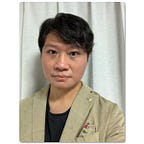Is the “National Security Law” for Hong Kong really a “law”?
The “National Security Law” for Hong Kong was announced and drafted by the Standing Committee of China’s National People’s Congress. While the text was not made public until the last minutes when the National People’s Congress passed the “law”, there is simply no more discussion on the legitimacy of such a “law”.
Some legal academics have been enthusiastically discussing the content of the “law” and ignore the fact about the odd procedure of passing such a “law”, as if procedural justice is no longer an issue in the rule of law and as if we have no option but to accept that it is already a “law”. We must recognize that discussing the content of this “law” does not justify the peculiar nature of this “law”.
I would not even attempt to discuss any part of this “law” as we should not help to legitimize this “law” as if this is the “reality” we all have to accept.
One key question we need to keep raising is that: this “law, like other legal texts and “laws” in mainland China, have extremely broad and vague definitions and they are often arbitrarily interpreted and applied by the judicial authorities and law enforcement agencies. One example is the definition of the charges of “subverting state powe” and “inciting subversion of state power” under article 105 of the PRC Criminal Law. Dissidents in China are often charged with these two offenses for their online expression. Courts, prosecutors and public security officials have never made any clear and legitimate explanations on what constitute these two offenses. Verdicts of those cases always just show that the courts cannot provide any legal interpretation, if any, to justify their verdicts. However, such offenses are listed in the content of the “National Security Law” for Hong Kong. So, what’s the point for us to pretend that we can actually rationally and meaningfully discuss the content of this so-called “law”?
Pretending to engage in actual discussion of this “law” is like legitimizing it. We should instead continue challenging its legitimacy and the procedural injustice of imposing this “law”.
